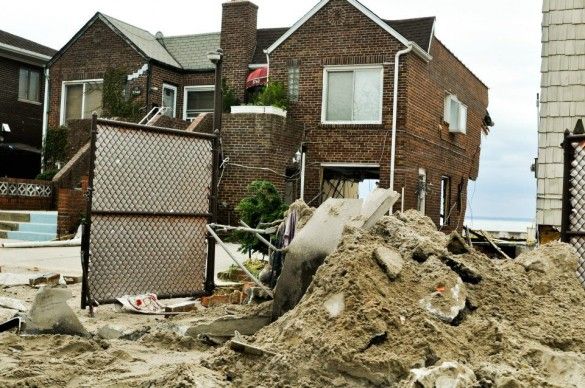Sandy-Stricken NYCHA Houses Stuck With Shoddy, Expensive Boilers Until 2016

The Committee on Recovery and Resiliency held its first hearing last Thursday in Coney Island and during the meeting New York City Housing Authority revealed that housing projects that were affected by Superstorm Sandy would be stuck with shoddily built boilers that often break until some time in 2016 – by which time they’ll have cost taxpayers at least $120 million.
Last week, Councilman Mark Treyger, who heads the committee, told us that he hoped to find a solution for these boilers since they were not made to be used below 40-degree weather. We wrote:
He believes the city is dragging its feet in figuring out a permanent plan, as FEMA is requesting critical infrastructure like boilers be placed above ground-level to avoid damage in future floods. But for those in the houses, a year is too long to wait, he said.
“It shouldn’t take us a year to figure that out. We’re having this meeting now because it’s still winter weather and I don’t want it to continue to be a lingering, ongoing problem. The money should be there, and that’s another part of this hearing and we need to track that money,” he said.
But instead of a solution, the committee was told by NYCHA’s Executive Vice President Raymond Ribeiro that the boilers wouldn’t be going anywhere until 2016, according to the Daily News.
Some of the boilers repeatedly broke down earlier this year during the coldest days of the season. The reason for breaking down, the Daily News reported, is because they were made in places like Texas and Tennessee and were never intended to withstand the cold of the north. But after Sandy left the normal heating system utterly destroyed, they couldn’t find anything better in time for the winter season and they now don’t have the funding to replace the boilers.
The Daily News reports:
NYCHA says it can’t move forward until its insurers and the federal government commit to specific funding. Ribeiro added that NYCHA’s insurers and the Federal Emergency Management Agency have told the Housing Authority that they’ll only pay for boiler repairs, not replacements.
On top of being unreliable, the boilers are also expensive. During our interview with Treyger he estimated that each boiler costs about $50,000 a month. There are 24 such boilers across the city being used by the Housing Authority, which comes out to $3 million a month. By 2016, the boilers will have been used for 40 months and come out to $120 million for rent and fuel, according to Daily News’ calculations.
To combat the breakdowns they saw at housing projects like O’Dwyer Gardens, a six-building NYCHA complex in Coney Island that’s home to more than 100,000 residents, NYCHA has used other forms of heating to keep the boiler’s pipes warm, including jerry-rigged kerosene heaters to warm the boilers’ pipes.




